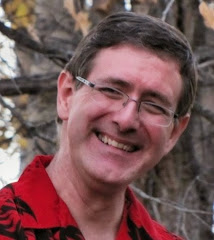When I hear today’s scripture, I don’t know if I’m the best
person to preach on this or the worst! I
am a first class worrywart of the strongest kind. This was a part of me even before I became a
mom, a job that is almost inherently worry-filled. When Tim and I were travelling on our
honeymoon, I worried if we would have a roof over our heads in the next town or
if we would run out of money, or whether we would have jobs when we got back to
Alberta and so on. You name it, I would
worry about it. Once I had little ones,
I read as much as I could on how to be the perfect parent. You know you are a world-class worrying mom
when you obsess about peer pressure and drug habits in high schools when your
child is still in diapers! It’s a wonder my kids turned out as well as they did. Thank goodness their dad was more relaxed.
This scripture, our Thanksgiving reading of Matthew, "be like the birds of the air or the flowers" was one
I had a hard time with. Did Jesus want
us all to become flower children of the sixties, going around and telling
everyone to chill out, or as someone said to me the other day, ‘chillax’? Go with the flow man, everything is far out,
dude. Well, I was not a teen ager in the
sixties, I was more like Michael J. Fox’s character Alex Keaton in Family Ties,
who carried a briefcase and was very different than his hippie parents. But I
would have been very sceptical of anyone telling me, the way Jesus seems to be,
that worrying is not the way to live life.
Try telling that to Syrian refugees or protestors in Turkey or people
with disabilities trying to make it on a small pension. But it is one thing to plan for the future
and another thing to obsess about it.
Neuroscientists would side Jesus. Worrying has a negative impact on brain
chemistry, especially obsessive fretting about things we can’t control. Trying to be thankful can actually help
promote healthier brains than worrying will.
And so many times in my life, the stuff I spent hours fussing about were
in the long run not worth the time and trouble I gave them. Do the kids remember if I ran out of bandages
on our camping trip in 2005? Heck, even I don’t remember if we went camping in
2005. It has not added to my enjoyment
of my life, my family or even my spiritual growth.
I think I would agree with Jesus that worrying does not
improve my spiritual life one little iota!
What it does do is focus my mind on things I cannot control, in the
hopes that I can somehow prevent or change them. Isn’t that a definition of insanity, trying
to control those things we can’t control?
Worrying also says to me that I do not and cannot trust myself to deal with
reality. The future will always be
terrifying and I will fall to pieces when that terrible future finally arrives.
So when I worry, I am focussing on fear and control. Jesus says that I cannot do that, I cannot
have two masters. I can have God as my
focus, or I can have the future as my focus, but I can’t have both. My worry is actually a barrier between myself
and God. Being a worrywart is
incompatible with being a pilgrim follower of Jesus.
Now, I dare say Jesus would not want us to throw our lot
with people who don’t think about the future at all. There is certainly the story of Jesus telling
his disciples to get him a donkey to ride into Jerusalem that sounds like he
had arranged it ahead of time and gave them the password to use if the owners
had any questions. And he did prepare
his disciples for the fact that he would be executed as a traitor to the state
before they ever arrived in Jerusalem.
As one mentor of mine said, “Trust in God but tie up your camel”.
Even so, we can say to ourselves that we are not going to
let this habit of worrying spoil our lives.
It is a habit that can be transformed in simple ways. One powerful tool is to recite the Serenity
Prayer to ourselves when we are fretting.
Written by one of the most important American theologians as a way to
cope with life during the dirty 30’s, his prayer to accept the things that we
cannot change, the courage to change the things we can, and the wisdom to know
the difference, is a spiritual practise that can help us to be more
thankful. Taking time to discern if the
thing we are worrying about is something we can change or not is the first step
towards letting go of our anxiety.
Writing things down helps.
When I read my old diaries, I can see how the things I worried about
resolved in surprising ways. Find a
prayer practise that helps you get calm, as simple as singing your favorite
hymn or walking the labyrinth or some other calming practise. Give your worries to God. Say, “God, this is too big for me, please
deal with it how you think best.” And join together in community to share
stories of thanksgiving, of resiliency, of prayers answered or worries
unfounded. When we join with our
brothers and sisters of faith, we can rise above our fears and worries to live
in the memory of Jesus. After all, he
faced the worst that humanity can experience without it ending his dream and
purpose for a new kind of world where all can practise thanksgiving prayers and
kindness to one another. In the end it’s
not about what we can do, it’s remembering to ask God for the gifts of serenity,
courage and wisdom. God will give us what we need to get through another day. May
it be so for us all.



